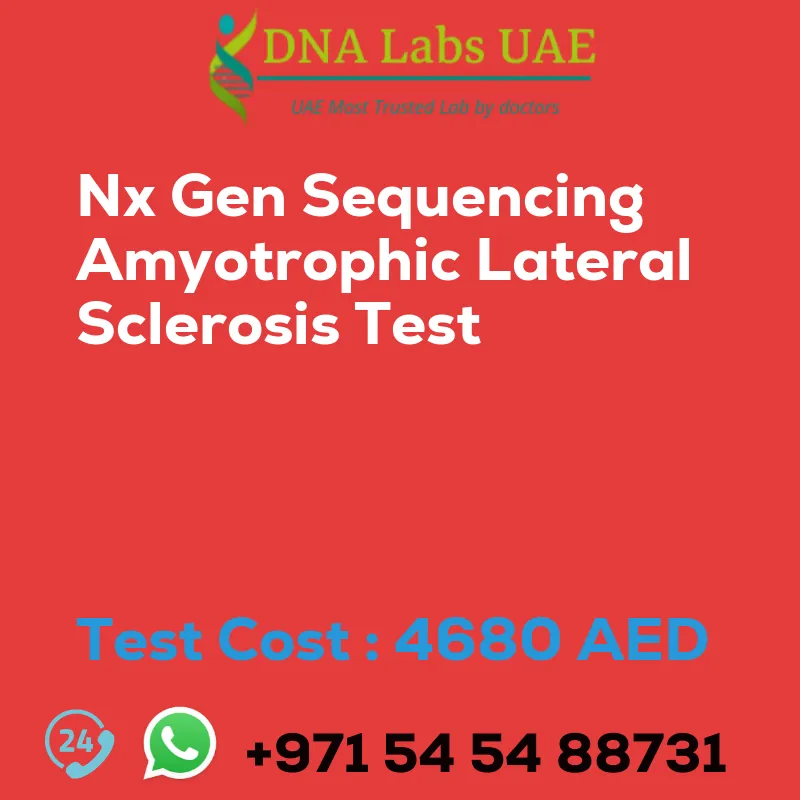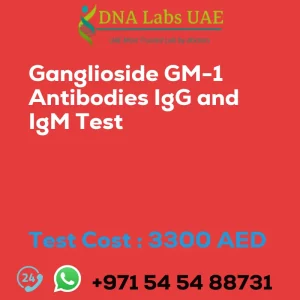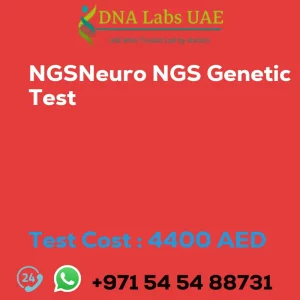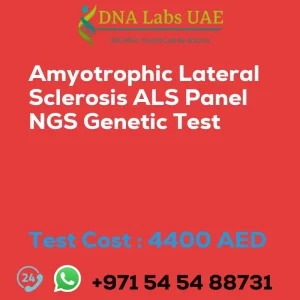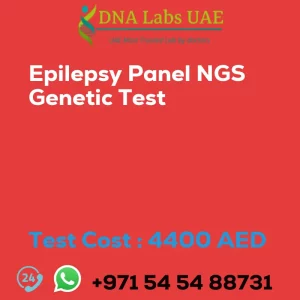Nx GEN SEQUENCING AMYOTROPHIC LATERAL SCLEROSIS Test
At DNA Labs UAE, we offer the Nx GEN SEQUENCING AMYOTROPHIC LATERAL SCLEROSIS Test to diagnose and understand the genetic causes of ALS. This neurodegenerative disease affects nerve cells in the brain and spinal cord, leading to the progressive loss of muscle control and eventual paralysis.
Test Components
The Nx GEN SEQUENCING AMYOTROPHIC LATERAL SCLEROSIS Test includes the following components:
- ALS2
- ANG
- ATXN2
- C9orf72
- CHCHD10
- CHMP2B
- DCTN1
- ERBB4
- FIG4
- FUS
- HNRNPA1
- MATR3
- NEFH
- OPTN
- PFN1
- PRPH
- SETX
- SIGMAR1
- SMN1
- SOD1
- SPG11
- SQSTM1
- TARDBP
- TBK1
- TRPM7
- TUBA4A
- UBQLN2
- VAPB
- VCP
Test Cost
The cost of the Nx GEN SEQUENCING AMYOTROPHIC LATERAL SCLEROSIS Test is AED 4680.0.
Sample Condition
To conduct the test, we require 10 mL (5 mL min.) whole blood from 2 Lavender Top (EDTA) tubes. The sample should be shipped refrigerated and should not be frozen. Additionally, a duly filled Whole Exome Sequencing Consent Form (Form 37) is mandatory.
Report Delivery
The sample should be submitted daily by 9 am, and the report will be delivered within 40 working days.
Method
The Nx GEN SEQUENCING AMYOTROPHIC LATERAL SCLEROSIS Test utilizes Next-generation sequencing (NGS) and Sanger sequencing methods.
Test Type
The Nx GEN SEQUENCING AMYOTROPHIC LATERAL SCLEROSIS Test falls under the category of Genetic Disorders-Progressive Motor Neuron Disease.
Doctor
The test is recommended to be conducted under the supervision of a neurologist.
Test Department
The test is conducted in our Molecular Diagnostics department.
Pre Test Information
A duly filled Whole Exome Sequencing Consent Form (Form 37) is mandatory before conducting the test.
Test Details
Next-generation sequencing (NGS) is a powerful diagnostic tool for Amyotrophic lateral sclerosis (ALS). It allows for rapid and cost-effective sequencing of large amounts of DNA or RNA. In the case of ALS, NGS can identify genetic mutations associated with the disease, such as SOD1, C9orf72, TARDBP, and FUS. By sequencing these genes, the test can detect any mutations or variations that may be present, aiding in the diagnosis of ALS and providing insights into its genetic causes.
NGS also has research applications for studying the genetic basis of ALS and identifying potential therapeutic targets. By sequencing the entire genome or transcriptome of individuals with ALS, researchers can gain a comprehensive understanding of the genetic changes that occur in the disease, leading to the development of new treatment strategies.
Overall, NGS has revolutionized the field of genetics and has the potential to greatly impact the diagnosis and treatment of ALS. It provides a more comprehensive and detailed view of an individual’s genetic makeup, improving our understanding of the disease and ultimately leading to better patient care.
| Test Name | Nx GEN SEQUENCING AMYOTROPHIC LATERAL SCLEROSIS Test |
|---|---|
| Components | ALS2, ANG, ATXN2, C9orf72, CHCHD10, CHMP2B, DCTN1, ERBB4, FIG4, FUS, HNRNPA1, MATR3, NEFH, OPTN, PFN1, PRPH, SETX, SIGMAR1, SMN1, SOD1, SPG11, SQSTM1, TARDBP, TBK1, TRPM7, TUBA4A, UBQLN2, VAPB, VCP |
| Price | 4680.0 AED |
| Sample Condition | Submit 10 mL (5 mL min.) whole blood from 2 Lavender Top (EDTA) tubes. Ship refrigerated. DO NOT FREEZE. Duly filled Whole Exome Sequencing Consent Form (Form 37) is mandatory. |
| Report Delivery | Sample Daily by 9 am; Report 40 Working days |
| Method | NGS, Sanger sequencing |
| Test type | Genetic Disorders-Progressive Motor Neuron Disease |
| Doctor | Neurologist |
| Test Department: | MOLECULAR DIAGNOSTICS |
| Pre Test Information | Duly filled Whole Exome Sequencing Consent Form (Form 37) is mandatory. |
| Test Details |
Amyotrophic lateral sclerosis (ALS) is a neurodegenerative disease that affects nerve cells in the brain and spinal cord. It leads to the progressive loss of muscle control, eventually resulting in paralysis and death. Next-generation sequencing (NGS) can be used as a diagnostic tool for ALS. NGS technologies allow for the rapid and cost-effective sequencing of large amounts of DNA or RNA. In the case of ALS, NGS can be used to identify genetic mutations that are associated with the disease. There are several genes that have been linked to ALS, including SOD1, C9orf72, TARDBP, and FUS. NGS can be used to sequence these genes and identify any mutations or variations that may be present. This information can help with the diagnosis of ALS and also provide valuable insights into the underlying genetic causes of the disease. In addition to diagnostic applications, NGS can also be used for research purposes to study the genetic basis of ALS and identify potential therapeutic targets. By sequencing the entire genome or transcriptome of individuals with ALS, researchers can gain a comprehensive understanding of the genetic changes that occur in the disease and potentially develop new treatment strategies. Overall, NGS has revolutionized the field of genetics and has the potential to greatly impact the diagnosis and treatment of ALS. By providing a more comprehensive and detailed view of an individual’s genetic makeup, NGS can help improve our understanding of the disease and ultimately lead to better patient care. |

